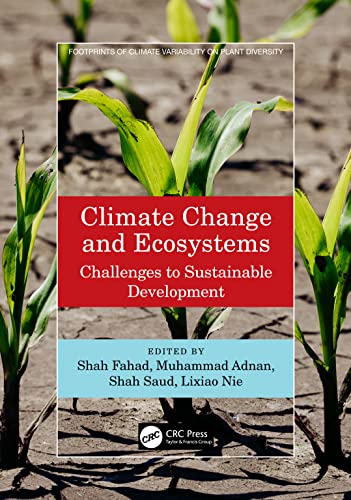

Most ebook files are in PDF format, so you can easily read them using various software such as Foxit Reader or directly on the Google Chrome browser.
Some ebook files are released by publishers in other formats such as .awz, .mobi, .epub, .fb2, etc. You may need to install specific software to read these formats on mobile/PC, such as Calibre.
Please read the tutorial at this link: https://ebookbell.com/faq
We offer FREE conversion to the popular formats you request; however, this may take some time. Therefore, right after payment, please email us, and we will try to provide the service as quickly as possible.
For some exceptional file formats or broken links (if any), please refrain from opening any disputes. Instead, email us first, and we will try to assist within a maximum of 6 hours.
EbookBell Team

0.0
0 reviewsThe global population is projected to increase by 3.3 billion from 6.7 billion in 2008 to 10 billion in 2100. As a result, soil degradation and desertification are growing due to the increasing demand for food, feed, fiber, and fuel on finite soil resources. The problem of global food insecurity may be further worsened by the threat of global warming. Climate change is showing its impacts in terms of increasing temperatures, variable rainfall, and an increase in climate-related extremes such as floods, droughts, cyclones, sea-level rise, salinity, and soil erosion. The agriculture sector is the most sensitive to climate change because the climate of a region/country determines the nature and characteristics of vegetation and crops. Increase in the mean seasonal temperature and decrease in effective precipitation can reduce the duration of many crops, may lead to outbreaks of pests and diseases, and hence reduce final yield ultimately affecting the food security of the country. Despite the positive impact of CO2 fertilization, the net productivity may decrease because of an increase in respiration rate, drought stress, and nutrient deficiency. For example, for every 75 ppm increase in CO2 concentration, rice yields will increase by 0.5 t/ha, but the yield will decrease by 0.6 t/ha for every 1°C increase in temperature. The global agricultural productivity is expected to decrease from 3% to 16% by 2080. The estimated decrease in agricultural productivity in the developing countries is 10%–25% in the 2080s, where average air temperature is already near or above crop tolerance levels. This book is intended to serve as a stimulating collection that will contribute to debate and reflection on the sustainable future of agriculture and food production in the face of global change.
Features: